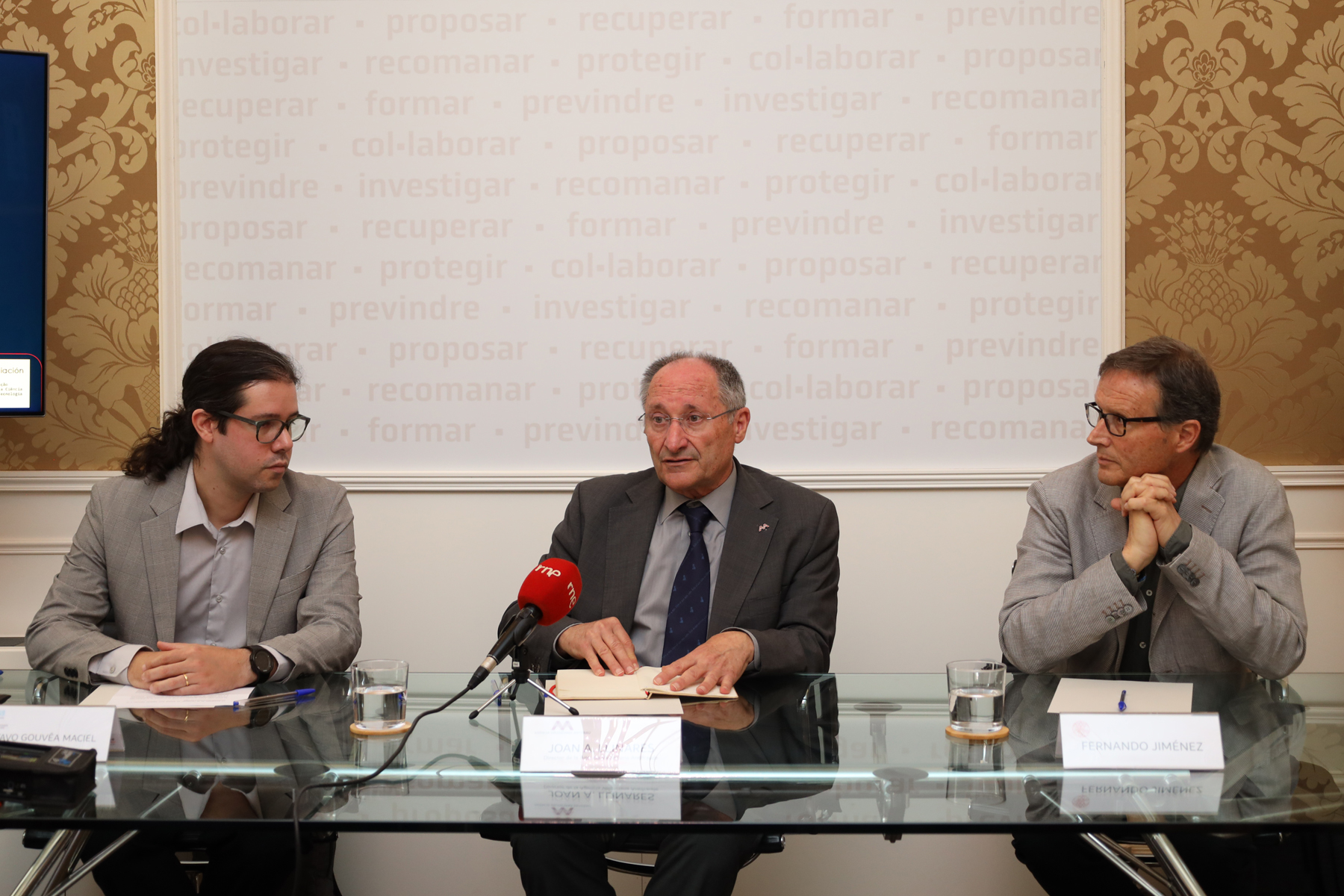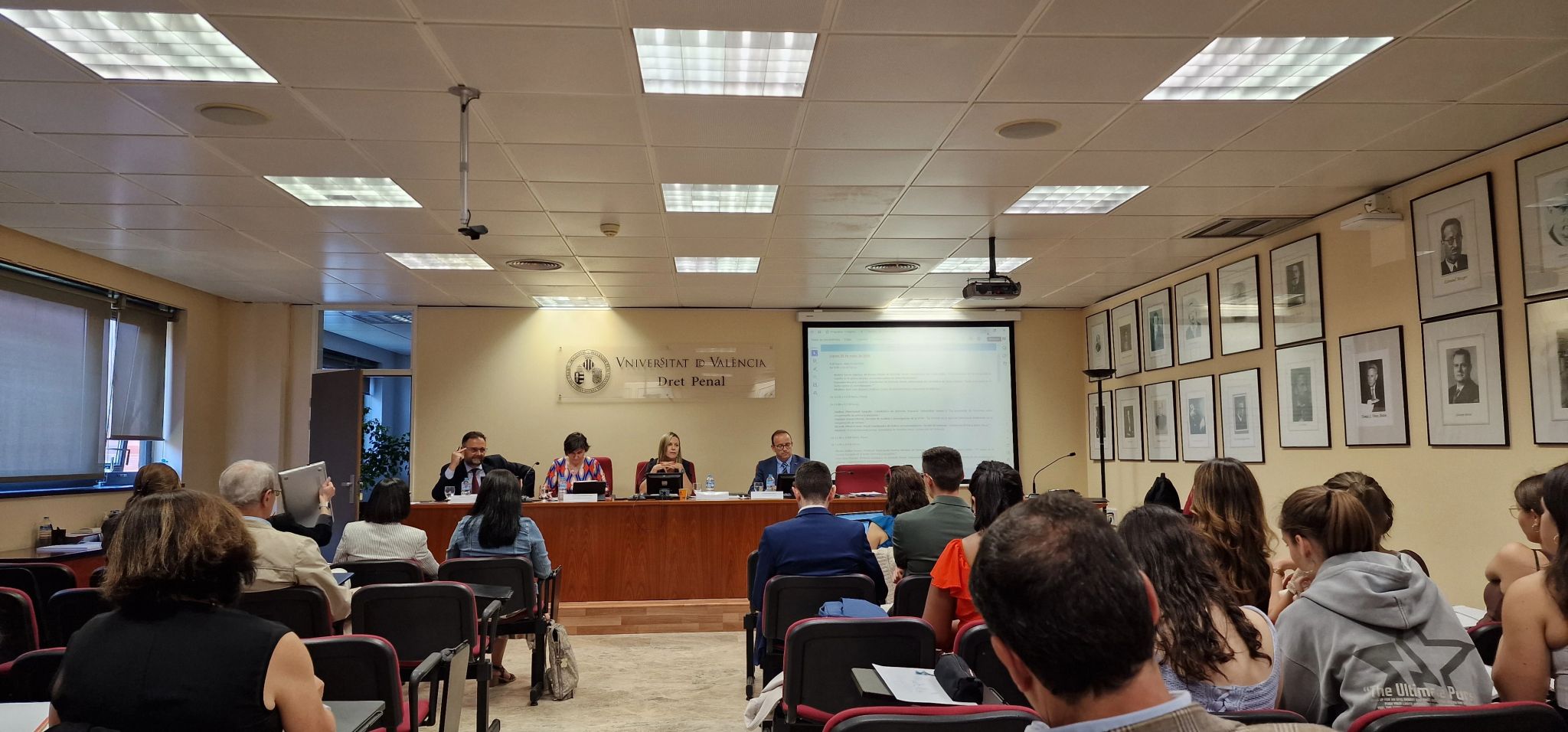València, 17 May 2024.- This morning the research report on “Comparative perceptions of corruption in Spain and Portugal” was presented at a press conference at the headquarters of the Valencian Anti-Fraud Agency.
The Professor of Political Science and Administration at the University of Murcia and head of the Chair of Good Governance and Public Integrity, Fernando Jiménez, and the researcher Gustavo Ouvêa from the Institute of Social Sciences of the University of Lisbon were in charge of presenting the report. The event was also attended by the director of the Agency, Joan Llinares.
For the preparation of this report, which analyzes and compares perceptions of corruption in both countries, two national surveys have been carried out with common questions. The first of the surveys was carried out in Portugal within the framework of the EPOCA project with funding from the Foundation for Science and Technology (FCT) under the scientific coordination of the Institute of Social Sciences of the University of Lisbon. The second of the surveys was carried out in Spain, with special attention to the Valencian Community, and is sponsored by the Valencian Anti-Fraud Agency under the scientific coordination of the University of Murcia.
This report offers for the first time an X-ray of the perception that citizens have regarding different aspects related to corruption and ethics and public integrity in both Spain and Portugal.
Key results of the survey
It is in politics and business that the people surveyed consider corruption to be most prevalent. On average, Spaniards and Portuguese think that around 50% of businessmen and between 60-70% of politicians are corrupt. When asked about officials, the assessment that they are corrupt drops to 40%, which puts them on the same level as the rest of the citizenry.
The practice of corruption that most worries citizens is not so much the payment of bribes, which remains low (11% in Spain and 10% in Portugal, and is at the European average of 11%); but the corruption that stems from the interaction between politics and business.
70% of the people interviewed in Spain and 80% in Portugal believe that corruption is not a circumstance, but is part of the country’s business culture, compared to 60% of the European average.
There is a belief that to succeed in business is to have good contacts with politicians. Here we do find differences because while in Spain 49% of the people surveyed believe that political clientelism is necessary, which is in line with the European average of 50%, the percentage shoots up to 70% in the case of Portugal.
In general, the perception prevails that the ethical context in both countries has not improved, despite the efforts of the authorities to prevent and combat corruption, although the perception that corruption has been increasing in Portugal is greater than in Spain.
Facts about the Valencian Anti-Fraud Agency
In this survey, the interviewees were also asked about issues that directly affect the Valencian Anti-Fraud Agency and therefore it was only asked about the population of the Valencian Community.
One of the singularities that this report has highlighted with respect to the Valencian Community is that among Valencian respondents there is a greater predisposition to report, since 1 in 4 Valencians would report in case of corruption compared to 1 in 5 in other autonomous communities.
Likewise, Valencians have a 5 points higher expectation that their complaint will have results and 5 points less likely to suffer reprisals for their complaint.
Another question referred to the degree of knowledge that exists among citizens about the Agency and 32% said they were aware of its existence compared to 68%. By age, those under 34 years of age are the least aware of it (85%), while the 35-49 age group are the ones who know it the most with 37%.
And regarding the functions entrusted to the Agency, the best known by citizens is that of “protecting those who report cases of corruption”, followed by that of “detecting and punishing corrupt people”, “preventing corruption from occurring” and finally that of “training politicians, officials and students in ethical values”.
You can consult the report at the following link




